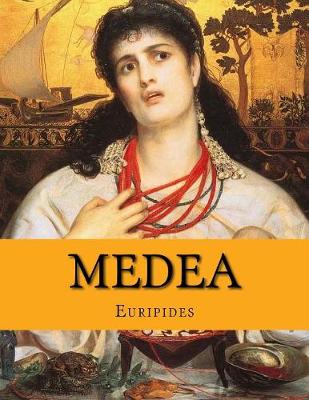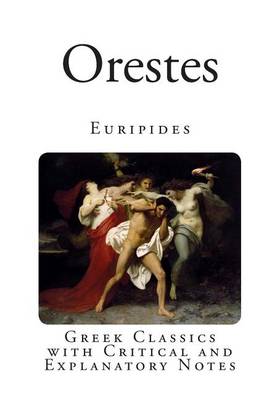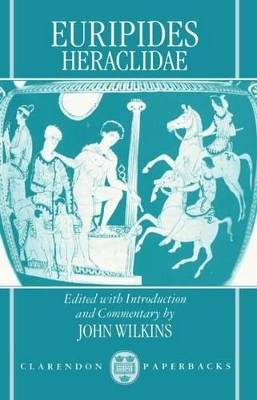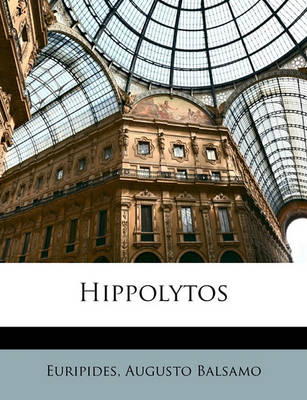Clarendon Paperbacks
7 total works
" 'What I intend to do is wrong, but the rage of my heart is stronger than my reason - that is the cause of all men's foulest crimes.' Medea is the archetypal wronged woman driven to despair. When uncontrollable anger is unleashed, the obsessed mind's capacity for revenge knows no bounds. Introduction by Nicholas Dromgoole"
This paperback edition of Euripides' Cyclops (first published in hardback in 1984) provides an invaluable introduction to the text for students. The play itself is the only example of satyric drama to have survived complete into the modern world. This edition uses the Oxford Classical Text, edited by James Diggle, and includes an introduction and commentary. In the introduction, a full historical and analytic account of the genre is given, reconstructing its
origins, development, and decline; the place of satyrs in the religious imagination and practice of the Greeks, and the significance of Euripides' divergences from the Homeric model, are also examined. The commentary looks closely at problems of text, language, and interpretation.
origins, development, and decline; the place of satyrs in the religious imagination and practice of the Greeks, and the significance of Euripides' divergences from the Homeric model, are also examined. The commentary looks closely at problems of text, language, and interpretation.
Celebrated for its dramatic ingenuity, Euripides's earlier version of the myth that Aeschylus made famous has not been revised in English since 1895. Popular in antiquity and important in the development of classical Greek tragedy, this play is now offered in an expanded edition, which includes a detailed discussion of lyric meter and a consideration of many textual changes.
This edition and commentary provides an invaluable introduction to one of Euripides' less well-known plays, and describes the enormousvalue of the text for our understanding of Athenian drama, religion,and society. Heraclidae is one of Euripides' `alphabetical' plays, preserved exclusively in a Laurentian manuscript, and therefore not selected in antiquity. Neither in modern times, despite the excellent commentaries of Elmsley (1821) and Pearson (1907), and powerful articles by Wilamwitz, has the play been given the prominence it deserves. This edition interprets the play in a wide cultural setting, considering unorthodox aspects of the structure of the drama, but placing particular emphasis on the cults and myths of Heracles in Attica, on his apotheosis and marriage, on his association with the young, and most of all on the two most striking rituals in the play: the voluntary self-sacrifice of the daughter of Heracles, and the conversion of Eurystheus from an enemy of Athens to a hero whose dead body will protect the city-state.
The text is James Diggle's (Oxford Classical Texts 1984)
The text is James Diggle's (Oxford Classical Texts 1984)
Euripides' Hippolytos tells of an honourable youth's tragic death, contrived by his father in the false belief that his son had seduced his new wife. This edition of the play is intended for students and scholars alike. The detailed commentary deals with textual problems in full, but wherever possible the editor has sought to explain the text adopted before discussing the reasons for its adoption. It also includes a close analysis of the lyric metres, and
discussion of the play's subject-matter and dramatic context.
The text is based on new collations of the medieval manuscripts (two of them hitherto uncollated) and on all known papyri. The Introduction contains a reappraisal, in the light of the evidence of the papyri, of the history of the text in antiquity, and advances a new account of the relationship between the medieval manuscripts. There is also a full discussion of the early history of the legend and of the two lost tragedies on the same theme.
discussion of the play's subject-matter and dramatic context.
The text is based on new collations of the medieval manuscripts (two of them hitherto uncollated) and on all known papyri. The Introduction contains a reappraisal, in the light of the evidence of the papyri, of the history of the text in antiquity, and advances a new account of the relationship between the medieval manuscripts. There is also a full discussion of the early history of the legend and of the two lost tragedies on the same theme.






